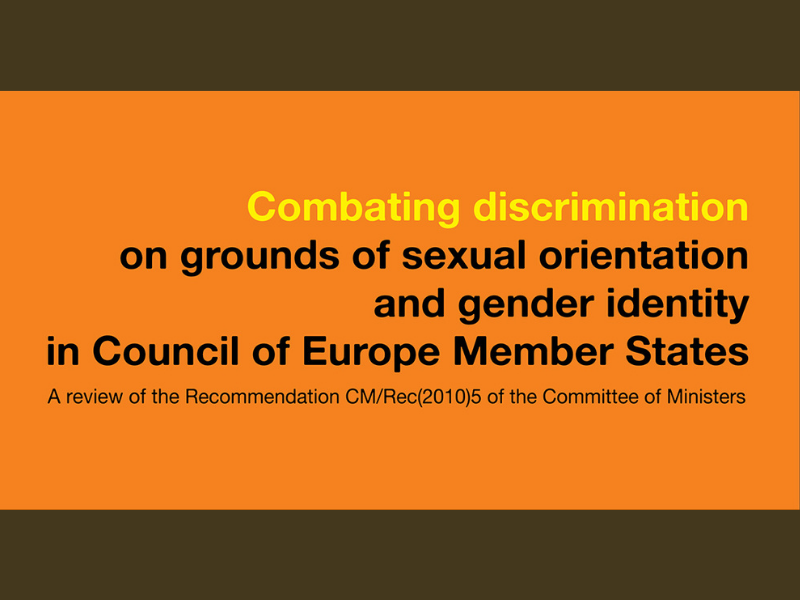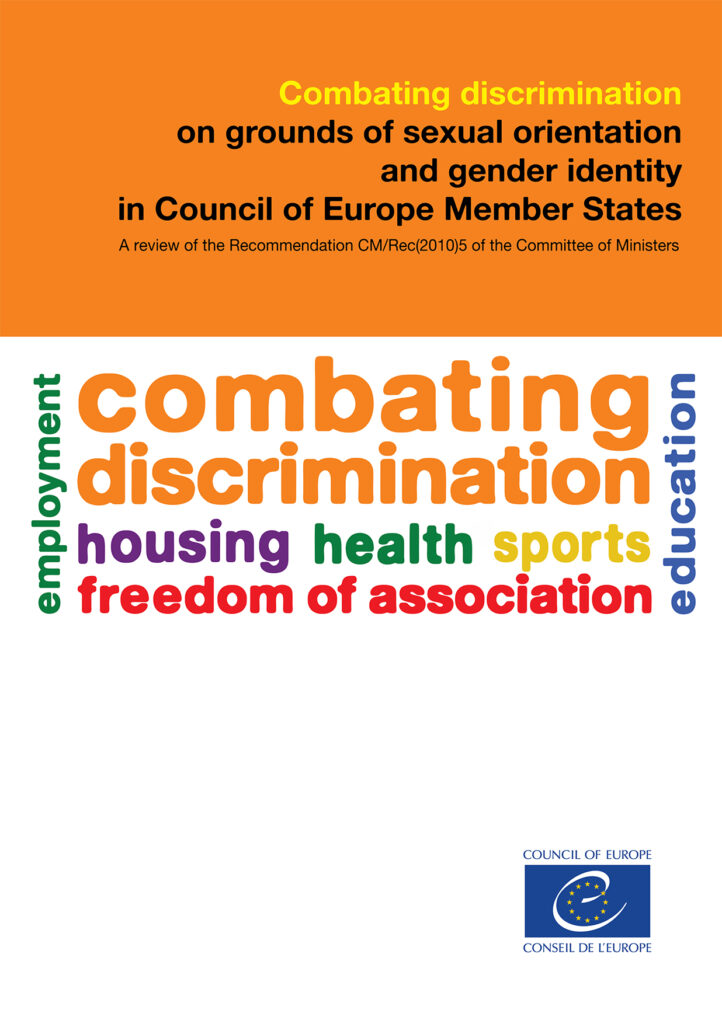Tgeu Welcomes CoE Report on LGBT Rights in Europe

TGEU welcomes the newly published Council of Europe report “Combating discrimination on grounds of sexual orientation and gender identity in Council of Europe Member States”. The report presents summary findings on the level of implementation of Recommendation CM/Rec(2010)5 of the Committee of Ministers to member states on measures to combat discrimination on grounds of sexual orientation or gender identity by the Council of Europe. It was compiled on the basis of answers by 42 of the 47 Member States to a questionnaire; civil society submissions; and reports by Council of Europe actors. The report was adopted by the Steering Committee for Human Rights (CDDH) in November 2019 and by the Committee of Ministers in September this year.
TGEU welcomes recommendations made by the Council of Europe, specifically focusing on the human rights of trans people. These include that Member States must:
- Ensure that gender identity is included in anti-discrimination, hate speech and hate crime legislation
- Abolish medical requirements for legal gender recognition
- Ensure that gender affirming care is accessible and reimbursed by public health insurance schemes
- Address discrimination affecting trans people on multiple grounds, including race, gender, disability, migrant status, and others
- Address the particular situation and needs of LBT women with regard to discrimination and violence.
Progress since 2013
- Trans human rights issues have continued to gain visibility in Europe
- A number of states have made important progress by adopting laws and policies fully respecting and upholding the human rights of trans people; many courts have issued progressive judgments
- 33 states have reviewed their discrimination legislation in the past five years in regard to including gender identity
- A number of states have removed medical requirements in their legal gender recognition procedures, including Malta, Belgium, Denmark, Greece, Ireland, Luxembourg, Norway and Portugal
- 15 states have hate crime legislation in place that criminalises crimes committed on the basis of gender identity, signaling an increase over the years.
TGEU commends the Council of Europe for highlighting country-specific good practice examples that have benefitted trans people and hopes that other states will find them helpful.
Gaps remaining
- Most states have failed to introduce legal gender recognition procedures that are quick, accessible, transparent and based on self-determination. 13 states still require sterilisation as a condition for trans people to access legal gender recognition and many others require surgeries, mandatory medical interventions or examinations. At least 17 countries still require a mandatory diagnosis or “expert opinion”. In at least seven countries, trans people must go through a judicial procedure to change their legal gender.
- In some countries, LGR is still unavailable or regulated really poorly, which leads to uncertainty and inconsistency in practice
- Many countries still require trans people to get a divorce before accessing LGR and others are unclear about the impact of LGR on an existing marriage
- Gender affirming healthcare is unavailable in a number of countries, forcing trans people to seek services abroad; where available, trans healthcare is often of poor quality or only accessible after excruciatingly long waiting times
- Trans healthcare is often conditional on medical opinions and is not available on the basis of self-determination
- Trans minors face additional barriers in accessing healthcare services
- Gender affirming care is fully covered by public insurance schemes in only 17 states and partially in six
- Gender identity is rarely included in hate speech legislation; transphobic hate speech by public officials is rarely sanctioned
- Only 18 of 47 states protect trans people from discrimination in employment
- Policies specifically targeting transphobic bullying and measures to support trans students and youth are rare
- The needs of trans asylum seekers are poorly addressed; some countries have failed to include gender identity as a ground of persecution in their asylum regulations
- Trans people are commonly assigned prison placement on the basis of their legal gender and they are rarely consulted about their preferences
- National Human Rights Institutions are less likely to have gender identity covered in their mandate than sexual orientation
- Multiple discrimination remains largely unaddressed, with little jurisprudence or research available
- Disaggregated data on the situation of trans people is missing
- Civil society consultations are not carried out in a systematic, sustainable, and regular manner

Background
In 2010 the Recommendation CM/Rec(2010)5 of the Committee of Ministers to Member States on measures to combat discrimination on grounds of sexual orientation or gender identity established the gold standard of LGBT rights in Europe. Agreed unanimously by the 47 Council of Europe Member States, it was the first and only agreement between governments to combat discrimination against LGBT people in Europe.
The level of implementation of the Recommendation has been assessed by the Council of Europe twice, in 2013 and 2018.
In 2018, TGEU and partner organisations ILGA-Europe and OII-Europe submitted a joint report to review the progress of implementation.
TGEU also supported five trans organisations in Armenia, Cyprus, Estonia, Finland, and Sweden in preparing country-specific submissions.